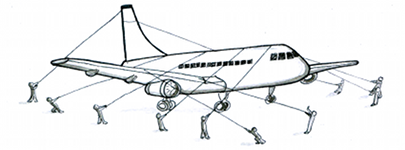NCADC Campaigning Toolkit


You, or a lawyer, can request that UKBA cancel the removal directions or deportation order. If you think you are in one of the situations described above when deportation should not take place, this is your first legal option.
Cancellation of removal directions or a deportation order may be requested on compassionate grounds, because you do not think the correct procedure has been followed, or because you have submitted further evidence. This is unlikely to be successful unless UKBA realise they have made a mistake that will clearly be challenged in court and want to retract the decision. As has been described, if you submit further evidence after removal directions have been issued, UKBA generally refuse the further evidence (as not meeting the fresh claim test) within a matter of hours and say the removal directions still stand.
See also: Judicial review in Higher courts section
If you are issued with removal directions or a deportation order, you may be able to apply for a judicial review of this. Judicial review is not an automatic right in England, Wales and Northern Ireland – you need to apply for permission to have your case heard. In Scotland there is no permission to apply stage: a petition is made to the Court of Session.
If you have permission for your case to be heard at the High Court, or have a date for a permission hearing for a judicial review, you should not be deported unless you are due to be deported on a charter flight, or the High Court directions state that High Court proceedings are not a bar to being deported.
If you are applying for a judicial review of, for example, the refusal and certification of your further evidence (UKBA say it is not a fresh claim), you may wait months for a hearing. If you are applying for a judicial review of removal directions, this will be dealt with urgently and you generally need to apply for an injunction at the same time to stop the flight.
An injunction is an emergency legal measure to stop the flight (cancel the ticket). This needs to be applied for at the High Court, and generally it would be argued that someone should not be deported on a certain flight and no new removal directions should be issued until a legal process has been completed. For example, it may be argued that the refusal of a fresh claim by UKBA was unreasonable and an error of law, and that the flight should be cancelled while a judicial review decides if UKBA must reconsider the fresh claim).
If deportation is scheduled to be on a charter flight, a pending judicial review on its own will not be enough to delay the deportation, and an injunction will be needed.
Judicial reviews are very complicated and you should always seek legal advice where possible on applying for a judicial review or injunction. Caseworkers and most solicitors cannot appear on your behalf at the High Court, and so they will need to instruct a barrister to take on the case.
Changes to legal aid have made it harder to get legal aid representation for judicial reviews.
If you are unrepresented or are being represented pro bono (for free, not under the legal aid system) and you lose your judicial review or application for permission for judicial review, you may be responsible for the costs.
If you are representing yourself, there is a Public Law Project leaflet that has important information on the process and costs, and the Bar Council has produced a guide to representing yourself in court.
With a few days left before a scheduled deportation date, it is still possible to take political action (such as speaking to your MP or contacting the Home Secretary) and do community campaigning.
It is very difficult to take effective action for an individual campaign when someone is booked on a charter flight, although there are ongoing direct actions against charter flights.
There is more scope for last-minute campaigning if someone is booked on a commercial flight. This is because the commercial airlines are more likely to respond if they think their business reputation is being damaged by being connected to deportations, and because of the pilot’s legal power to refuse to carry a passenger if they think it would in any way put the flight at risk.
Some airlines have recognised that being involved in deportations makes them look bad. A broader campaigning aim is to get airlines to refuse to take part in these deportations all together – some airlines cite that they are legally required to accept the deportee if UKBA issue removal directions/a deportation order under immigration law, and it is UKBA not the airline carrying out the deportation.
Consumer pressure, however, may still have an impact. Almost all the big airlines have Facebook pages and Twitter accounts. Individual campaign information can be posted on these sites (with Facebook pages, you generally have to ‘like’ the page before you can post comments, and not all the pages allow comments), so that all of their customers and potential customers can see the kind of activities (deportations, complicity in the violation of human rights) the companies are engaged in.
There have been clear examples of supporter action leading to an airline refusing to carry a person being deported This has often been in combination with the person facing deportation speaking to staff as well (see below), and raising awareness of the campaign meant that staff were probably aware the individual may speak to them, and possibly made them more receptive to their explanation. If someone is issued with removal directions with one airline, the ticket is cancelled and the next removal directions are with another airline, this may mean that airline campaigning stopped the first deportation.